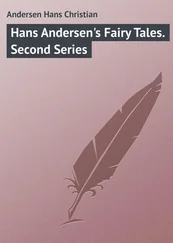George Foote - Flowers of Freethought (Second Series)
Здесь есть возможность читать онлайн «George Foote - Flowers of Freethought (Second Series)» — ознакомительный отрывок электронной книги совершенно бесплатно, а после прочтения отрывка купить полную версию. В некоторых случаях можно слушать аудио, скачать через торрент в формате fb2 и присутствует краткое содержание. Жанр: foreign_antique, foreign_prose, на английском языке. Описание произведения, (предисловие) а так же отзывы посетителей доступны на портале библиотеки ЛибКат.
- Название:Flowers of Freethought (Second Series)
- Автор:
- Жанр:
- Год:неизвестен
- ISBN:нет данных
- Рейтинг книги:5 / 5. Голосов: 1
-
Избранное:Добавить в избранное
- Отзывы:
-
Ваша оценка:
- 100
- 1
- 2
- 3
- 4
- 5
Flowers of Freethought (Second Series): краткое содержание, описание и аннотация
Предлагаем к чтению аннотацию, описание, краткое содержание или предисловие (зависит от того, что написал сам автор книги «Flowers of Freethought (Second Series)»). Если вы не нашли необходимую информацию о книге — напишите в комментариях, мы постараемся отыскать её.
Flowers of Freethought (Second Series) — читать онлайн ознакомительный отрывок
Ниже представлен текст книги, разбитый по страницам. Система сохранения места последней прочитанной страницы, позволяет с удобством читать онлайн бесплатно книгу «Flowers of Freethought (Second Series)», без необходимости каждый раз заново искать на чём Вы остановились. Поставьте закладку, и сможете в любой момент перейти на страницу, на которой закончили чтение.
Интервал:
Закладка:
Dr. Jayne relied upon the authority of Mr. Waugh, who happened to be present at the meeting. This gentleman jumped up in the middle of the Bishop's speech, and said "it was the case, that the class most guilty of cruelty to children were those who took materialistic, atheistic, selfish and wicked views of their own existence." Surely this is a "fine derangement of epitaphs." It suggests that Mr. Waugh is less malignant than foolish. What connection does he discover between Secularism and selfishness? Is it in our principles, in our objects, or in our policy? Does he really imagine that the true character of any body of men and women is likely to be written out by a hostile partisan? Such a person might be a judge of our public actions, and we are far from denying his right to criticise them; but when he speaks of our private lives, before men of his own faith, and without being under the necessity of adducing a single scrap of evidence, it is plain to the most obtuse intelligence that his utterances are perfectly worthless.
We have as much right as Mr. Waugh to ask the world to accept our view of the private life of Secularists. That is, we have no right at all. Nevertheless we have a right to state our experience and leave the reader to form his own opinion. Having entered the homes of many Secularists, we have been struck with their fondness for children The danger lies, if it lies anywhere, in their tendency to "spoil" them. It is a curious fact – and we commend it to the attention of Dr. Jayne and Mr. Waugh – that the most sceptical country in Europe is the one where children are the best treated, and where there is no need for a Society to save them from the clutches of cruelty. There is positively a child-cultus in the great French cities, and especially in Freethinking Paris. In this Bible-and-beer-loving land the workman, like his social "superior," stands or sits drinking in a public-house with male cronies; but the French workman usually sits at the cafe table with his wife, and on Sundays with his children, and takes his drink, whatever it may be, under the restraining eyes of those before whom a man is least ready to debase himself.
One Secular home, at least, is known to us intimately. It is the home of the present writer, who for the moment drops the editorial "we" and speaks in the first person My children are the children of an Atheist, yet if they do not love me as heartily as Dr. Jayne's or Mr. Waugh's children love their father, "there's witchcraft in it." There is no rod, and no punishment in my home. We work with the law of love. Striking a child is to me a loathsome idea. I shrink from it as I would from a physical pollution. Strike a child once, be brutal to it once, and there is gone forever that look of perfect trust in the child's eyes, which is a parent's dearest possession, and which I would not forfeit for all the prizes in the world.
I know Christians who are less kind to their children than I am to mine. They are not my natural inferiors. Humanity forbid that I should play the Pharisee! But they are degraded below their natural level by the ghastly notion of parental "authority" I do not say there are no rights in a family. There are ; and there are also duties. But all the rights belong to the children, and all the duties belong to the parents.
Personally I am not fond of talking about myself. Still less am I anxious to make a public exhibition of my home. But if the Dr. Jaynes and the Mr. Waughs of the Christian world provoke comparisons, I have no fear of standing with my little ones opposite them with theirs, and letting the world judge between us.
Dropping again into the editorial style, we have a question to ask of the Bishop of Chester, or rather of Mr. Waugh. It is this. Where are the statistics to justify your assertion? Men who are sent to gaol, for whatever reason, have their religions registered. Give us, then, the total number of convictions your Society has obtained, and the precise proportion of Secularists among the offenders. And be careful to give us their names and the date and place of their conviction.
We have a further word to all sorts and conditions of libellous Christians. Where are the evidences of Atheistic cruelty? The humanest of the Roman emperors were those who were least under the sway of religion. Julius Caesar himself, the "foremost man of all this world," who was a professed Atheist, was also the most magnanimous victor that ever wore the purple. Akbar, the Freethinker, was the noblest ruler of India. Frederick the Great was kind and just to his subjects. But, on the other hand, who invented and who applied such instruments of cruelty as racks, wheels, and thumbscrews? Who invented separate tortures for every part of the sensitive frame of man? Who burnt heretics? Who roasted or drowned millions of "witches"? Who built dungeons and filled them? Who brought forth cries of agony from honest men and women that rang to the tingling stars? Who burnt Bruno? Who spat filth over the graves of Paine and Voltaire? The answer is one word – Christians. Yet with all this blood on their hands, and all this crime on their consciences, they turn round and fling the epithet of "cruel" at the perennial victims of their malice.
ARE ATHEISTS WICKED?
One of the most effective arts of priestcraft has been the misrepresentation and slander of heretics. To give the unbeliever a bad name is to prejudice believers against all communication with him. By this means a twofold object is achieved; first, the faithful are protected from the contagion of scepticism; secondly, the notion is propagated that there is something essentially immoral involved in, or attendant upon, unorthodox opinions; and thus the prevalent religious ideas of the age become associated with the very preservation and stability of the moral order of human society.
This piece of trickery cannot, of course, be played upon the students of civilisation, who, as Mill remarked, are aware that many of the most valuable contributions to human improvement have been the work of men who knew, and rejected, the Christian faith. But it easily imposes on the multitude, and it will never be abandoned until it ceases to be profitable.
Sometimes it takes the form of idle stories about the death-beds of Freethinkers, who are represented as deploring their ill-spent life, and bewailing the impossibility of recalling the wicked opinions they have put into circulation. At other times it takes the form of exhibiting their failings, without the slightest reference to their virtues, as the sum and substance of their character. When these methods are not sufficient, recourse is had to insinuation. Particular sceptics are spared perhaps, but Freethinkers are depicted – like the poor in Tennyson's "Northern Farmer" – as bad in the lump. It is broadly hinted that it is a moral defect which prevents them from embracing the popular creed; that they reject what they do not wish to believe; that they hate the restraints of religion, and therefore reject its principles; that their unbelief, in short, is only a cloak for sensual indulgence or an excuse for evading irksome obligations.
We are so accustomed to this monstrous theory of scepticism in religious circles, that it did not astonish us, or give us the least surprise, to read the following paragraph in the Christian Commonwealth —
"Free Life, and No Compulsory Virtue, was the title of a placard borne by a pamphlet seller of the public highway a few days ago. What the contents of the pamphlets were we do not know, but the title is a suggestive sign of the times, and a rather more than usually plain statement of what a good deal of modern doubt amounts to. Lord Tennyson was severely taken to task a few years ago for making the Atheist a villain in his 'Promise of May,' but he was about right. Much of the doubt of the day is only an outcome of the desire to discredit and throw off the restraints of religion and moral law in the name of freedom, wrongly used. Free love, free life, free divorce, free Sundays, in the majority of cases, are but synonyms for license. Those who hold the Darwinian doctrine of descent from a kind of ape may yet see it proved by a reversion to the beast, if men succeed in getting all the false and pernicious freedom they want."
Читать дальшеИнтервал:
Закладка:
Похожие книги на «Flowers of Freethought (Second Series)»
Представляем Вашему вниманию похожие книги на «Flowers of Freethought (Second Series)» списком для выбора. Мы отобрали схожую по названию и смыслу литературу в надежде предоставить читателям больше вариантов отыскать новые, интересные, ещё непрочитанные произведения.
Обсуждение, отзывы о книге «Flowers of Freethought (Second Series)» и просто собственные мнения читателей. Оставьте ваши комментарии, напишите, что Вы думаете о произведении, его смысле или главных героях. Укажите что конкретно понравилось, а что нет, и почему Вы так считаете.












